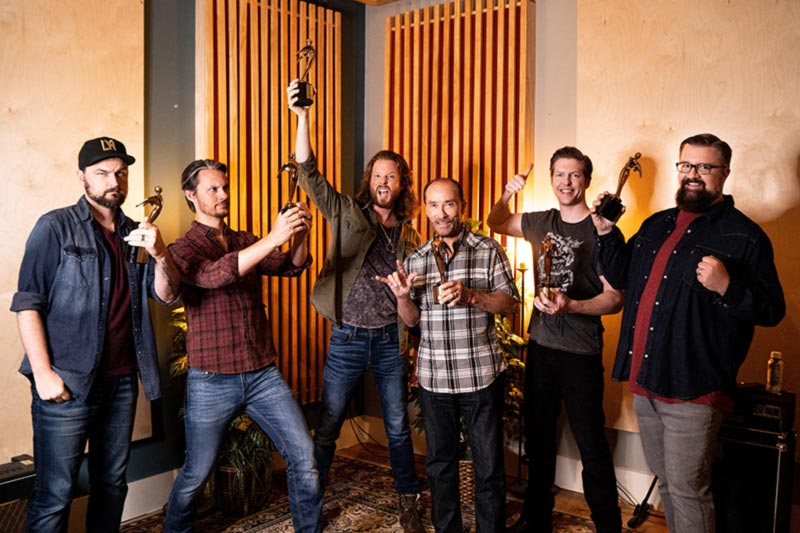Here’s the latest from the crossroads of faith, media & culture: 07/12/21

When a little helps a lot. Singer Michele Pillar wrote about facing hard times (in the form of depression) in her book Untangled, The Truth Will Set You Free and talked with me about it for this blog. As someone who has dealt with depression, I found her honesty and courage in talking about it commendable. Also commendable is her commitment to helping those in need. That became particularly clear as we were winding down that interview and is now the basis for this post.
Closer to Home was founded by Pillar in 2000 with the goal of supplying food, shelter, clothing and education needs for individuals and families in Williamson County, Tennessee who find themselves in the midst of a financial crisis. She has hopes of bringing the endeavor national.
JWK: Tell me about Closer to Home.
Michele Pillar: What’s unique about the model and the system that we’ve set up for Closer to Home is we work through third-party references to target those we help. In other words, the people we help don’t see the help coming. They’re not even reaching their hand out.
Every single morning we receive emails from people like Social Services in Williamson County and different counties in our state, counselors from schools, the juvenile court system, the Police Department (or) Vanderbilt Cancer Center. These third parties are kind of our eyes and our ears. I mean they’re on the front lines, right? They see somebody and they say “This person is deserving of help. This person’s trying their hardest and they need their lights turned back on” or “They need glasses” or they need whatever they need. And so we get the application in the morning and within 24 hours we fulfill that need.
What’s great, again, is the person isn’t asking. When they get the help they don’t even know who it is that helped them. What I love about that is it not only protects Closer to Home (so that) we don’t really have people banging our door down…but it also helps the dignity of those we help because a lot of the people we help wouldn’t even (seek) help. I mean they need it but they wouldn’t necessarily (ask for) it…I mean that person’s doing all they can to survive every day. So, if someone is overseeing a homeless a community or counseling with the homeless or something like that, they can absolutely (reach out to) us. It also keeps us from getting scammed, to be honest with you, because the people that come to us are reputable people. We’ve been doing this 20 years. Closer to Home is actually 21 years old and I can count on less than one hand how many times somebody tricked us.
What I’d love to see is other pilot Closer to Homes pop up anywhere because we’ve been doing this for 21 years. So, the model is simple. The model’s not complicated. It’s not expensive to run. Our overhead is practically nothing. If people donate to Closer to Home…they get the tax exemption. We have one paid employee. She has very close relationships with these third-party references. I mean all the social workers, all the people that write into us for the help, she’s known for years so it’s a very trusted relationship. So, that’s very clean.
JWK: It strikes me as the sort of thing that could actually prevent homelessness by stepping in to help people who are teetering on the edge but haven’t yet fallen into it. It could lift that straw that, so to speak, breaks the camel’s back.
MP: It’s amazing that you said that because I’ve been watching this for 21 years and I cannot tell you how many times that’s exactly what it’s done. I mean where someone was right on the brink and they just needed a leg up – and we gave them that leg up. We paid their rent for six months or we paid their van off. It’s really crazy stuff that happens.
A mother of three got cancer. Her husband left. You know, so many times when people get cancer the marriage splits up. So, now she was a single mother of three young children (and she had) cancer. She’s (dealing) with all of that and she’s financially in trouble. She’s missing a lot of work. So, we pretty much floated her. When we found out about her, her electricity had been turned off. She needed van payments made. She needed gas money to get to chemo. We covered that stuff and she did not end up homeless – and she was having relief while she was going through cancer.
I remember we got a letter from her. She didn’t know who we were, so she gave it to her social worker or someone at the cancer center and she said “Please give this to whoever helped me.” She said “Thank you. Tonight I cooked my children dinner on a stove that worked. I read a bedtime story with a lamp that went on. And I got into a hot bath and I just relaxed my aching body. And I just want to thank you.” I’ll never forget that letter.
We have tons of stories. You can imagine, 21 years. But, you’re right. It can be that little (assist). We don’t help people for long distances of time but we help them just enough where they don’t fall into homelessness.
JWK: That’s enough to make a big difference.
End Note: For more information on Closer to Home go to closertohomebenefit.org.
Encourage one another and build each other up – 1 Thessalonians 5:11


